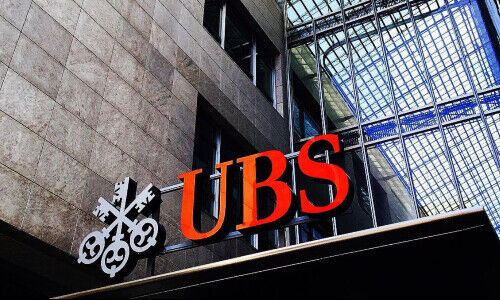Three Reasons for UBS’s Positive Inflows
Did UBS benefit from troubled rival Credit Suisse? The net new money figures imply such an assumption. But the facts are different.
Was it luck or skill? Last year, according to figures published on Tuesday, the largest Swiss bank UBS booked a total of $60 billion in net new money in its core global wealth management (GWM) business. That’s an impressive figure, especially because markets collapsed in 2022 and many clients were very cautious with some losing a lot of money.
UBS also saw net inflows of $25 billion in its asset management business and in its home market of Switzerland (P&C), there were inflows of 2 billion Swiss francs ($2.2 billion) in «personal banking». How was this possible?
UBS Denies
It is easy to assume that UBS benefited from the problems at Credit Suisse, where numerous clients, who were sometimes in panic mode, moved up to 100 billion francs to other financial institutions.
While several Swiss private banks confirm such a shift in recent months, UBS denies that it has experienced the same, according to several unnamed executives that spoke to finews.asia. Accordingly, nothing about a possible «CS effect» can be found in UBS’s financial report.
Nevertheless, the inflow is extraordinary, especially in the second half of 2022. In Switzerland, UBS collected about $9 billion in fee-generating assets in the fourth quarter alongside $11 billion in Europe, $4 billion in the Americas and $3 billion in Asia.
Three Reasons
There are three main factors that helped UBS raise this new money – assuming it wasn't CS assets. First, many wealthy individuals and families looked for more security last year, and UBS, with its sheer size and stability, was a valuable address for it.
Secondly, as many client advisors confirm, the high degree of digitalization from the bank's tools and applications has also contributed to some new clients bringing part of their assets to UBS.
Finally, the hikes in interest rates prompted many wealthy people to rethink their asset allocation and move away from riskier investments into more conservative financial products that had attracted little attention in previous years. In this segment, UBS was able to offer a broad range of investment solutions which, combined with the bank's Swiss background, was particularly popular abroad.
One-Off Effect
The development of net new money in the second half of 2022 must, however, be regarded as a one-off effect, as there are some indications that Credit Suisse has put the worst of the turbulence behind it.
Moreover, the bull market in equities, which has been going on for around two months, is likely to come to a halt in the next few months, as the earnings forecasts of many companies will be revised downward, and one or two interest rate hikes are still to be expected from major central banks.
In this respect, the past few months were due to pent-up demand, which will, however, give way to a still volatile reality – at least in the first half of 2023, as per numerous strategists and economists.




























